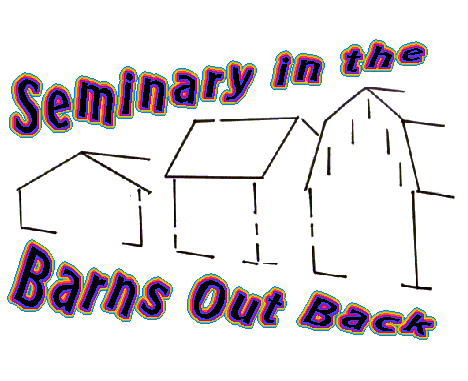|
|
|

|
The Chicken |
 |
|
|
||
| Links To: | Congregational Life | Congregational Growth | Evangelism |
Walking Wounded |
Clergy are human and are subject to all the maladies and pains common to humanity. In addition, clergy, no matter their gender or their theological perspective, face a good many uncommon pains, tensions and paradoxes in their roles that, cumulatively, constitute being a pastor. Being "called" does not necessarily mean being spared; there are times when clergy are so pressed that they feel sacrificed by God, by the Church, by everybody. Those pains, tensions and paradoxes are often ones that cannot be easily resolved (if at all) and frequently become the occasion for deep and hard to heal wounds ... not just of the body, but of the core of spiritual being, the soul. All together too often, the "badges of experience" that come with being a pastor are:
hypertension, One of the places in which we clergy tend to most yield to our humanness is in our responses to our pains, tensions and paradoxes. We do similar denial, blame, projection and other "defensive" [but usually self-defeating] strategies that we recognize as unhealthy and unhelpful in others. One of the things that makes being a pastor so difficult is that as "one who is called," we are somehow special, if not in our own eyes, at least in the eyes of many others. In that specialness we, and others around us, are tempted to think that we should somehow be able to take care of everything in our own lives and in the lives of others. In our specialness, we frequently succumb to the temptation of thinking that we are somehow "bullet-proof". Pastors are supposed to live model lives; pastors are supposed to live lives that overcome adversity in the best possible fashion; pastors are supposed to at least look good; pastors are supposed to have "The Answer." However, in the popular idiom of contemporary psychology, clergy easily get caught up in the rescuer role of the victim- rescuer- persecutor cycle that dominates and destroys so many people in our Western culture. Being a rescuer is a heavy, painful and lonely job. There are many of us pastors who are burdened, hurting and lonely. Our life does not have to be that way. It is possible to change our lives ... our lives as pastors. The place at which the change starts is with the ways we understand our "call" ... our specialness. Clergy are called ... clergy are special ... but not in the ways that we usually think. We are called to be like Jesus is: one who has suffered and does not hide the scars; one who has been mortally wounded, but still walks ; one who is met by God in the grave and who has been transformed and who is resurrected by the gift of God; one who comforts others with the comfort with which he himself has been comforted. That is a comfort that comes when God takes the worst failure and turns it into the sweetest victory. Jesus went to the grave stunned and confused. His cry: "My God, My God why have you forsaken me?" was not just dramatics. Jesus came from grave with scars and with the power of "The Comforter". Our specialness as clergy does not merely come from our training, our consecration in ordination, and so on. It comes from getting honest with ourselves and others and meeting the Risen One at our weakest, most wounded, and deadest places. It comes as we recognize the Risen One as The Wounded One when we see the nail prints in his hands and feet, when we see the wound in his side. It comes from letting the Wounded One comfort us, reanimate us and resurrect us. It comes when we recognize that by the gift of God, we are walking wounded and we go to comfort one another with the comfort with which we ourselves have been comforted. It seems particularly important that we who are "called" offer such comfort to one another. When we become honest about our own wounds and meet Jesus at them, we begin to discover that we are not alone. All human beings suffer; some are just better at hiding, denying or otherwise avoiding it than others. It is then we discover that ministry is not about what we do, but about what Jesus does when we (each one) meet him at our woundedness. This isn't just some exercise in exhibitionism or "scab-picking" or neurotic obsession with our hurts. It is not about showing our wounds to everyone. It is about admitting that none of us is as alone as we sometimes feel. Each of us is a member of the body of Christ and we are all vitally connected through the Holy Spirit. When one of us hurts, we all hurt. Most importantly, it is about relating with God and with each other in ways that let us be healed and become healers. Wounds then become the fertilizer for growing our witness. |